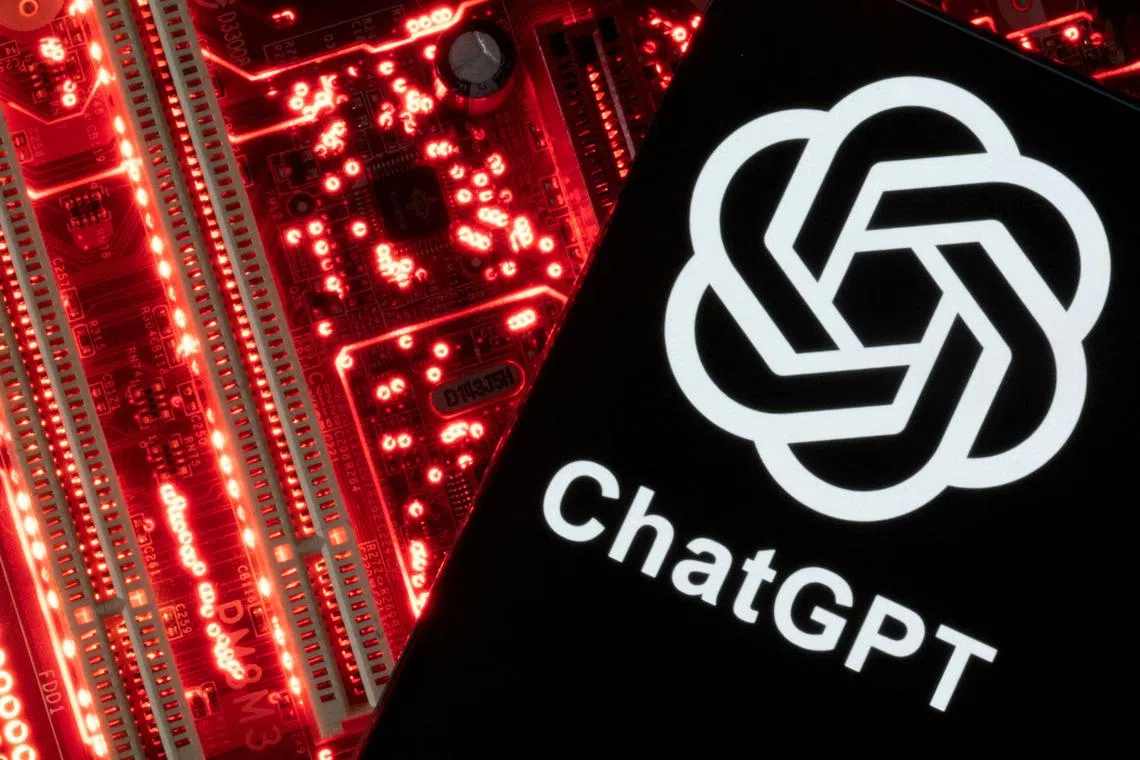Ukraine and China will dominate G-7 summit, but a new threat lurks: AI
Sign up now: Get ST's newsletters delivered to your inbox

The G-7 leaders are expected to discuss an approach to regulating the use of generative AI programs.
PHOTO: REUTERS
HIROSHIMA, Japan – United States President Joe Biden began his foreshortened Asia trip on Thursday in Hiroshima,
There, he prepared for discussions with his closest allies on two crucial issues: how to better arm Ukraine as it enters its counter-offensive against the Russian invaders, and how to slow, or halt, the downward spiral in relations with China.
Both are now familiar topics to the leaders of the Group of 7 (G-7 ) nations, who have grown far tighter, and have remained surprisingly unified, since Russia began its assault on Ukraine 15 months ago.
But at some point over three days of discussions, the G-7 leaders are also expected to venture into new territory: the first conversations among the world’s largest democratic economies about a common approach to regulating the use of generative artificial intelligence (AI) programs such as GPT-4.
AI was not on the early agenda as Prime Minister Fumio Kishida invited the other six leaders – joined by Prime Minister Narendra Modi of India and, via video or in person, President Volodymyr Zelensky of Ukraine – to the Japanese prefecture where he got his political start.
But as the new AI language model from OpenAI made nations around the world focus for the first time on the possibilities for disinformation, chaos and the physical destruction of critical infrastructure, Mr Biden’s national security adviser Jake Sullivan began calling counterparts to seek a common discussion.
It is far from clear that this group of leaders – the G-7 also includes Germany, Britain, France, Canada and Italy – can sustain a conversation on a technology that appeared to burst on the scene so quickly, even if it was years in the making.
Past efforts to get the group to take up far more straightforward cyber security issues usually descended into platitudes about “public-private partnerships”, and there has never been serious discussion of rules to guide the use of offensive cyber weapons.
US officials say that in the case of chatbots, even a vague foundational discussion may help in establishing some shared principles: that the corporations that bring products using the large-language models will be primarily responsible for their safety, and that there must be transparency rules that make it clear what kind of data each system was trained on.
That will enable lower-level aides to discuss details of what those first regulations would look like, the officials said.
But as the G-7 leaders convene starting on Friday,
Some of the core members are seeking to arm Mr Zelensky in ways that may outpace Mr Biden’s willingness.
When he was in Britain, Prime Minister Rishi Sunak embraced Mr Zelensky in a bear hug and told reporters, “They need the sustained support of the international community to defend against the barrage of unrelenting and indiscriminate attacks that have been their daily reality for over a year. We must not let them down.”
Britain and the Netherlands have been pressing Washington to allow Ukraine to begin training on the use of F-16 fighter jets.
But just as Mr Biden was at first reluctant to turn over Himars and Patriot missile batteries and other technologies, he has been cautious about the F-16, a plane that could easily reach, and hit, the Kremlin.
So the US seems likely to argue in Hiroshima that the fighter jets, while symbolically impressive, would be so expensive that they would come at the price of sending far more useful, inexpensive systems, including the air defences that have proved surprisingly successful in taking down incoming Russian missiles.
The apparent damage to at least part of a new Patriot missile battery in Kyiv this week has underscored the fact that such systems are precious.
Mr Biden has consistently been cautious – overcautious in the minds of Mr Zelensky and some Nato allies – about giving Ukraine weapons that he believes might lead to rapid escalation of the war and renewed threats by Russian President Vladimir Putin to use a tactical nuclear weapon.
Britain has just begun giving Ukraine another precision weapon with greater reach than the American-provided Himars, a missile system called Storm Shadow.
Britain’s Foreign Secretary James Cleverly told reporters in Washington last week that Mr Putin’s threats of escalation now ring more hollow, and that these “are gateways to which they are going to have to pass”. NYTIMES


